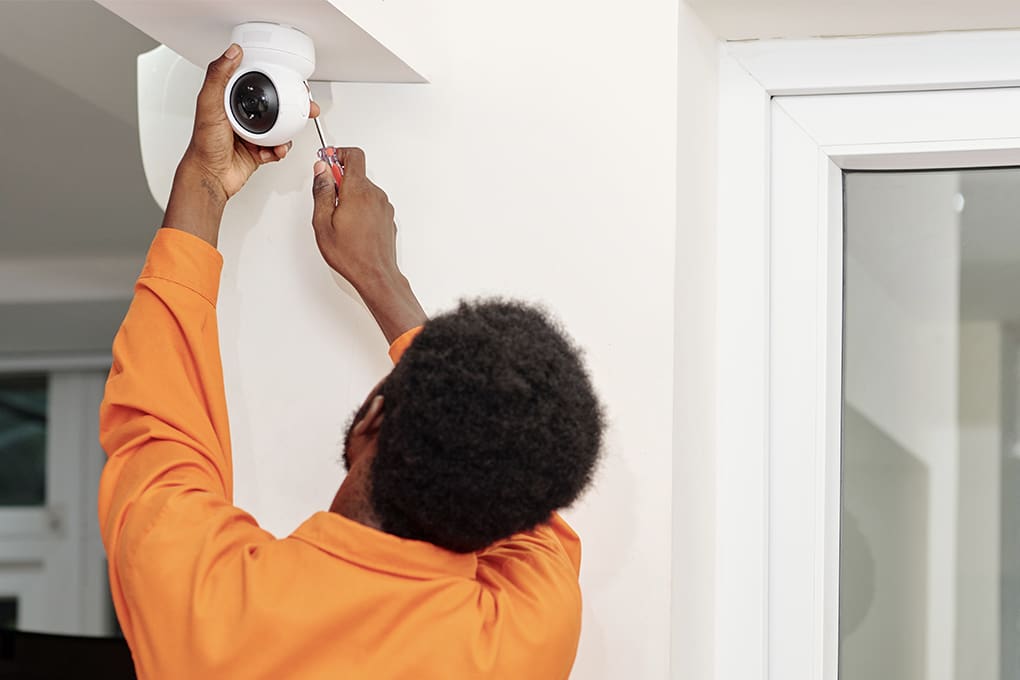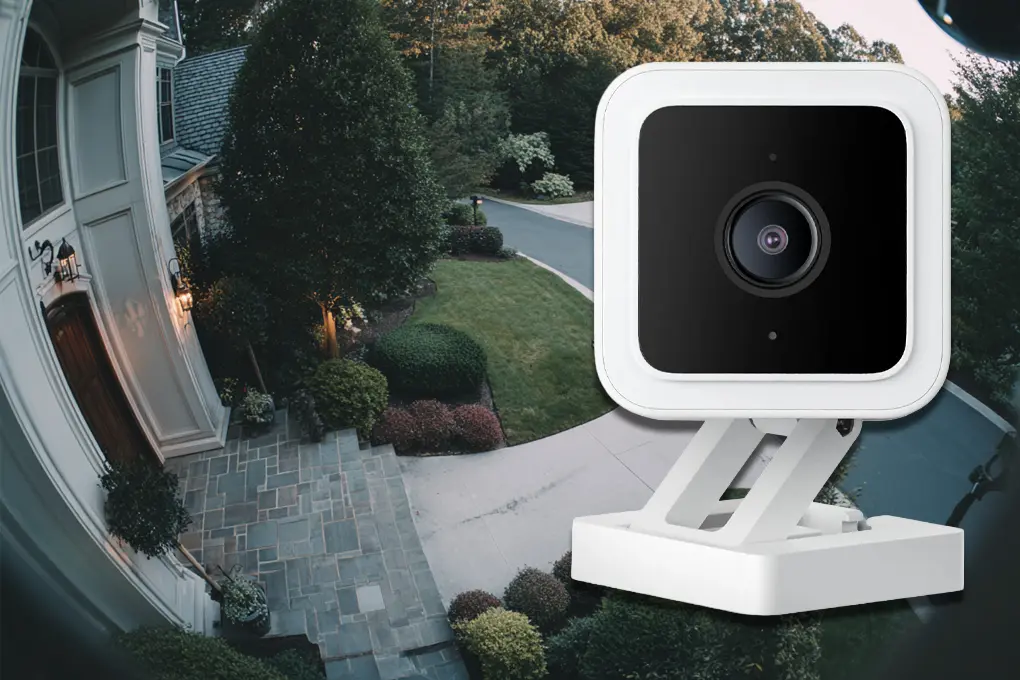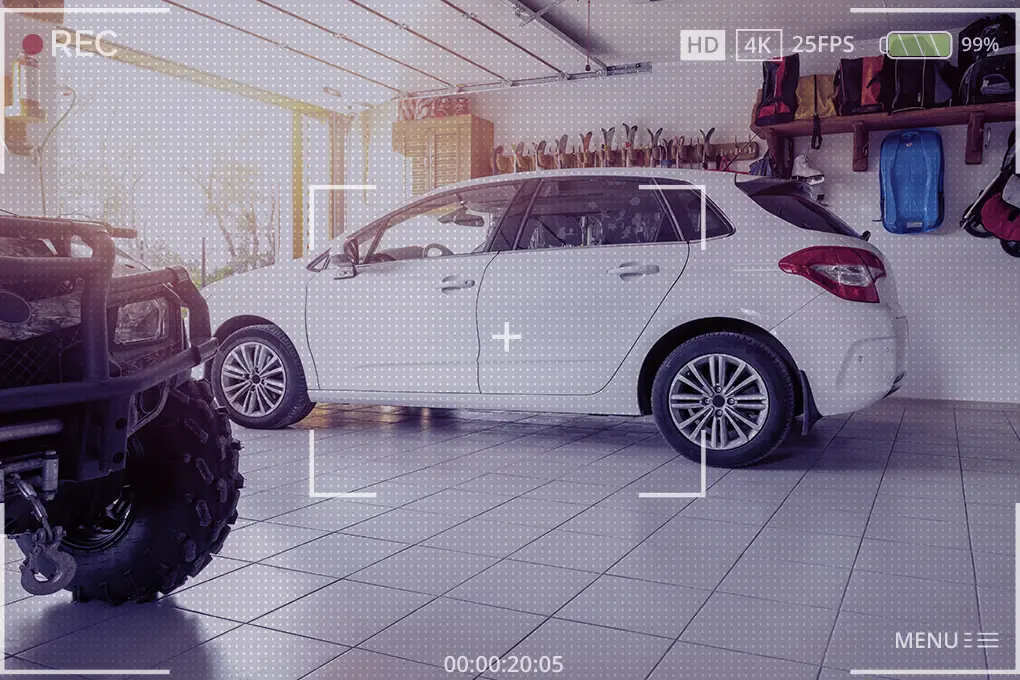Home break-ins remain a persistent threat in America, with FBI data reporting approximately 1.1 million residential burglaries annually. The average dollar loss per burglary stands at $2,661, creating significant financial and emotional impact for victims.
Despite these consistent security challenges, the traditional home security industry has long relied on restrictive multi-year contracts, with J.D. Power research finding that 43% of consumers cite “contract requirements” as their primary frustration with conventional security services.
The market has responded to this consumer demand for flexibility. According to Markets and Markets research, the global home security systems market reached $56.1 billion in 2024 and is projected to grow to $93 billion by 2030, with no-contract options driving significant portions of this expansion. Security Industry Association data shows that DIY and no-contract security installations have increased by 19.7% since 2022. In 2024, the global home security systems market was valued at over $56.1 billion and is projected to reach nearly $93 billion by 2030, reflecting a compound annual growth rate of approximately 8.9% from 2024 to 2029.
These contract-free systems now deliver sophisticated protection without long-term commitments – a particularly valuable proposition for the 36% of Americans who rent their homes (U.S. Census Bureau) and others seeking flexibility without compromising security.
After extensive evaluation across diverse home environments, these three systems emerge as the definitive best no-contract security solutions for 2025:

Can You Get a Home Security System Without a Contract?
Absolutely.
No-contract home security systems offer the flexibility and control that many consumers now demand. Unlike traditional systems that bind users to multi-year agreements, these options allow for self-monitoring without long-term commitments. This is particularly advantageous for renters, frequent movers, or those wary of cancellation penalties, which can sometimes exceed hundreds of dollars.
The increasing demand for no-contract solutions has spurred innovation in the market. Through rigorous testing, research, and real-world feedback, we’ve identified the top three no-contract systems based on:
- The reliability and range of their equipment packages
- The quality of customer support without mandatory subscriptions
- User reviews and real-world effectiveness
If you’re ready to protect your home without the constraints of a contract, these three options stand out for their convenience, affordability, and advanced features. Let’s explore them in detail.
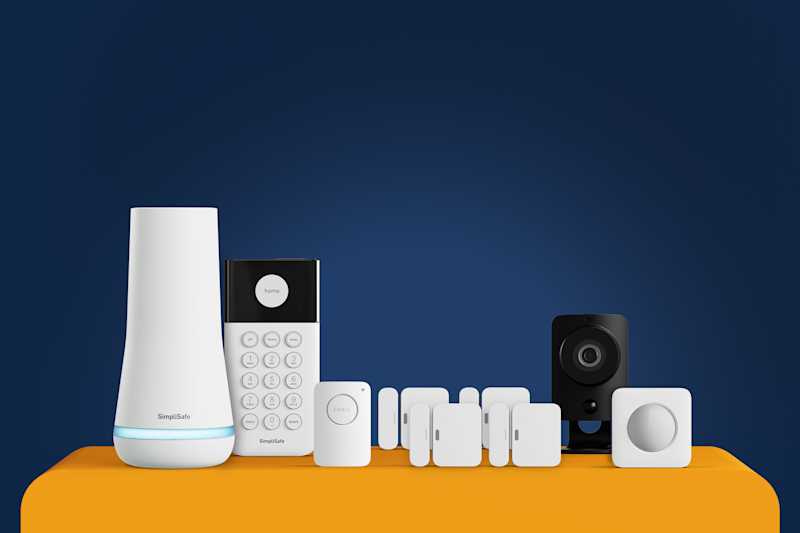
Table of Contents
SimpliSafe: The Essentials Kit
SimpliSafe’s Essentials Kit has established itself as a popular choice in the DIY home security market. As someone who has extensively tested this system, I can offer some unique insights into its performance and user experience.
The SimpliSafe system stands out for its ease of use and installation. Even those who aren’t particularly tech-savvy can set up the system in under an hour. The base station’s design is sleek and unobtrusive, blending well with most home decors. However, I noticed that the motion sensors can be somewhat sensitive, occasionally triggering false alarms due to pets or changes in sunlight.
One of the most impressive features is the cellular backup, which provides peace of mind during power outages. The keypad remote, running on four batteries, offers flexibility in placement around the house. However, typing long passwords on the 12-digit keypad can be cumbersome.
Key Features
- Base station with Wi-Fi and cellular connectivity
- Wireless keypad remote
- Entry sensors and motion detector
- Optional professional monitoring
- Expandable system with additional accessories
Pros
- Easy DIY installation
- No long-term contracts required
- Affordable starting price
- Loud, effective alarm
- Flexible monitoring options
Cons
- Limited smart home integration
- Monthly fees for both professional and self-monitoring
- Video quality issues reported by some users
- Lack of outdoor camera options in basic packages
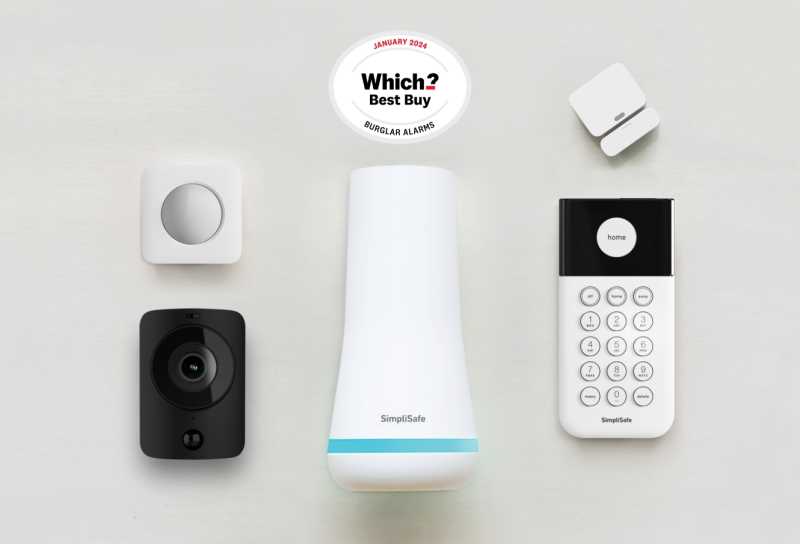
Insights From Testing
The SimpliSafe system’s simplicity is both its strength and weakness. While it’s incredibly user-friendly, this simplicity sometimes comes at the cost of advanced features. The geofencing feature, which is lacking in SimpliSafe, could be a valuable addition for automatic arming and disarming based on user location.
The company has shown commitment to improving its offerings. For instance, they introduced a $99 smart lock in October 2019, expanding their home security ecosystem. However, the limited third-party device support may be a drawback for smart home enthusiasts looking for more integration options.
Statistics
- Starting price for the Essentials Kit: $260
- Professional monitoring costs: $21.99 to $79.99 per month
- Equipment packages range: $250 to $730
- Backup battery life: 24 hours
- Number of entry sensors in Essentials Kit: 3 (one more than typical kits)
SimpliSafe has seen significant growth, with professional monitoring costs increasing three times in four years. Despite this, it remains a competitive option in the market due to its balance of affordability and effectiveness.
In conclusion, SimpliSafe’s Essentials Kit offers a solid, user-friendly home security solution that’s particularly well-suited for those new to DIY security systems. While it may not satisfy the needs of advanced smart home enthusiasts, it provides reliable protection and peace of mind for the average homeowner.
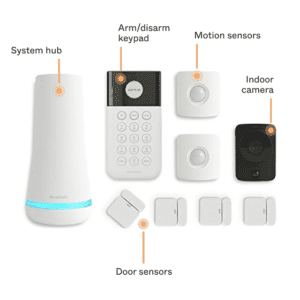
Pros
The most basic kit comes in at a price point of $229 and is considered relatively straightforward since it can connect over WiFi and to cellular data. Customers can personalize their system and account for more wants with the various packages available on upgrade. Users can even have up to 10 cameras as well as high-tech features like a panic button. SimpliSafe offers its customers the ability to have their site professionally monitored 24/7, or monitor it themselves through a smartphone app.
Cons
While SimpliSafe offers the ability to have professionals monitor one’s property or to do it oneself, neither of these options is free. Basically, customers have to pay monthly fees for this, whether it be to the company, or for one’s own iCloud storage. Many people looking to avoid security systems without contracts are not excited to hear about the average of $14.99 in fees to monitor the equipment each month.
Lastly, many home security specialists complain about the quality of the video on the SimpliSafe equipment. There is also no outdoor camera offered with SimpliSafe packages and only a weatherproofing kit that people can use in an attempt to modify indoor cameras. This can lead to quality issues with outside detection for cameras that must be outdoors. In summary, this package is not ideal for those who expect top-notch equipment and motion sensors at an affordable price.
Abode iota
Who is this best for?
Abode is similar to SimpliSafe in terms of the cost for a base model and is another monitoring service that doesn’t require users to sign a long-term contract. This system is more geared toward those who want to integrate their current smart home devices with their security system. Abode is capable of pairing with Apple HomeKit, Alexa, Google Assistant, Z-Wave, etc., which is more than most home security systems can do. The IoTa system is perfect for those who want an easy DIY system.
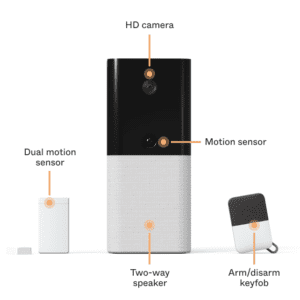
As someone who has extensively tested the Abode iota system, I can offer unique insights into its performance and user experience. The iota stands out in the DIY home security market for its impressive smart home integration capabilities and all-in-one design.
The iota hub, which serves as the system’s brain, is a sleek device that houses a 1080p camera, motion sensor, and two-way audio capability. This compact design is particularly appealing for those with limited space or who prefer a minimalist aesthetic. During my testing, I found the camera quality to be excellent, providing clear footage both day and night.
One of the most impressive features of the Abode iota is its CUE automation engine. This powerful tool allows users to create complex home automation scenarios, making it a standout choice for smart home enthusiasts. I was able to create up to 100 different automation rules, which significantly enhanced the system’s functionality and my home’s overall intelligence.
Who is this best for?
Abode iota is ideal for:
-
Smart home enthusiasts seeking extensive integration options
-
Those who want a flexible, no-contract security solution
-
Apartment dwellers and homeowners looking for an all-in-one system
-
DIY-oriented users comfortable with technology
-
People who value customization and automation in their security setup
Pros
-
Extensive smart home integration (Apple HomeKit, Alexa, Google Assistant, Z-Wave, Zigbee)
-
All-in-one design with built-in camera and motion sensor
-
Flexible, no-contract monitoring options
-
Affordable monthly fees starting under $7 for basic service
-
Powerful CUE automation engine for customized scenarios
-
Suitable for both apartments and houses
Cons
-
Higher upfront costs for advanced equipment and cameras
-
Can be complex to set up for less tech-savvy users
-
Additional costs for professional monitoring ($21/month)
-
Limited customer support compared to larger security companies
Insights While Testing
The Abode iota’s compatibility with over 4,000 Z-Wave certified products sets it apart from many competitors. This vast ecosystem allows for unparalleled customization and integration possibilities. However, this extensive compatibility can be overwhelming for some users, potentially leading to analysis paralysis when choosing compatible devices.
The key fob included with the system is a thoughtful addition, especially useful for households with multiple members or those who prefer physical controls. I found it particularly handy for quick arming/disarming without needing to use the smartphone app.
-
Base iota kit price: $379.99 (as of February 2025)
-
Professional monitoring cost: $21/month
-
Basic self-monitoring cost: Under $7/month
-
Number of CUE automations allowed: 100
-
Camera resolution: 1080p with 157-degree field of view
-
Siren volume: 93dB
The Abode iota offers a powerful, flexible home security solution that’s particularly well-suited for tech-savvy users and smart home enthusiasts. While it may present a steeper learning curve for some, its extensive integration capabilities and powerful automation features make it a top contender in the DIY home security market.
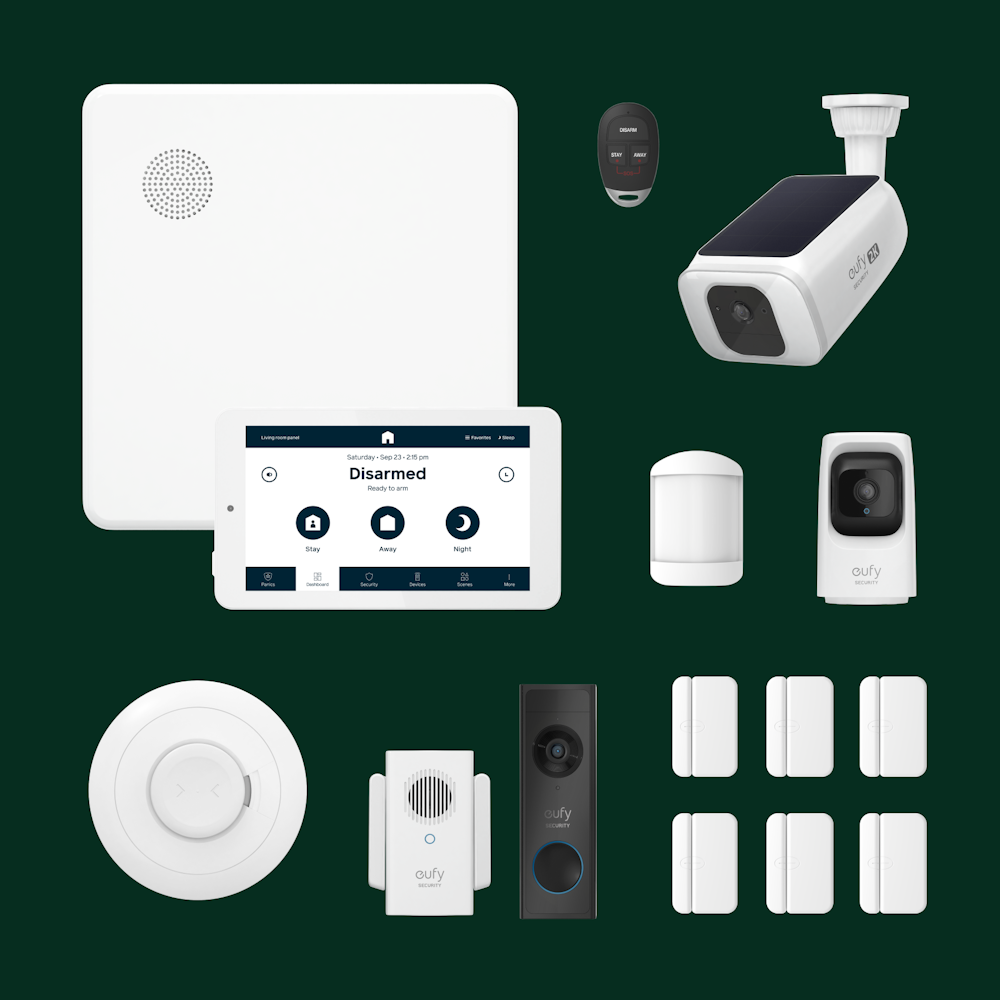
Cove Security System
As someone who has extensively researched and tested various home security systems, I can provide a unique perspective on Cove’s offerings. Cove stands out in the crowded home security market with its focus on certain professions and its customizable approach.
Who is this best for?
Cove is particularly well-suited for:
-
Healthcare workers, educators, and military personnel due to profession-specific discounts
-
Those who value a personalized security setup
-
Individuals who prefer professional installation options
-
People looking for an affordable yet comprehensive security solution
From my experience, Cove’s approach to customization is refreshing. It allows users to tailor their security system to their specific needs, which is not always the case with other providers.
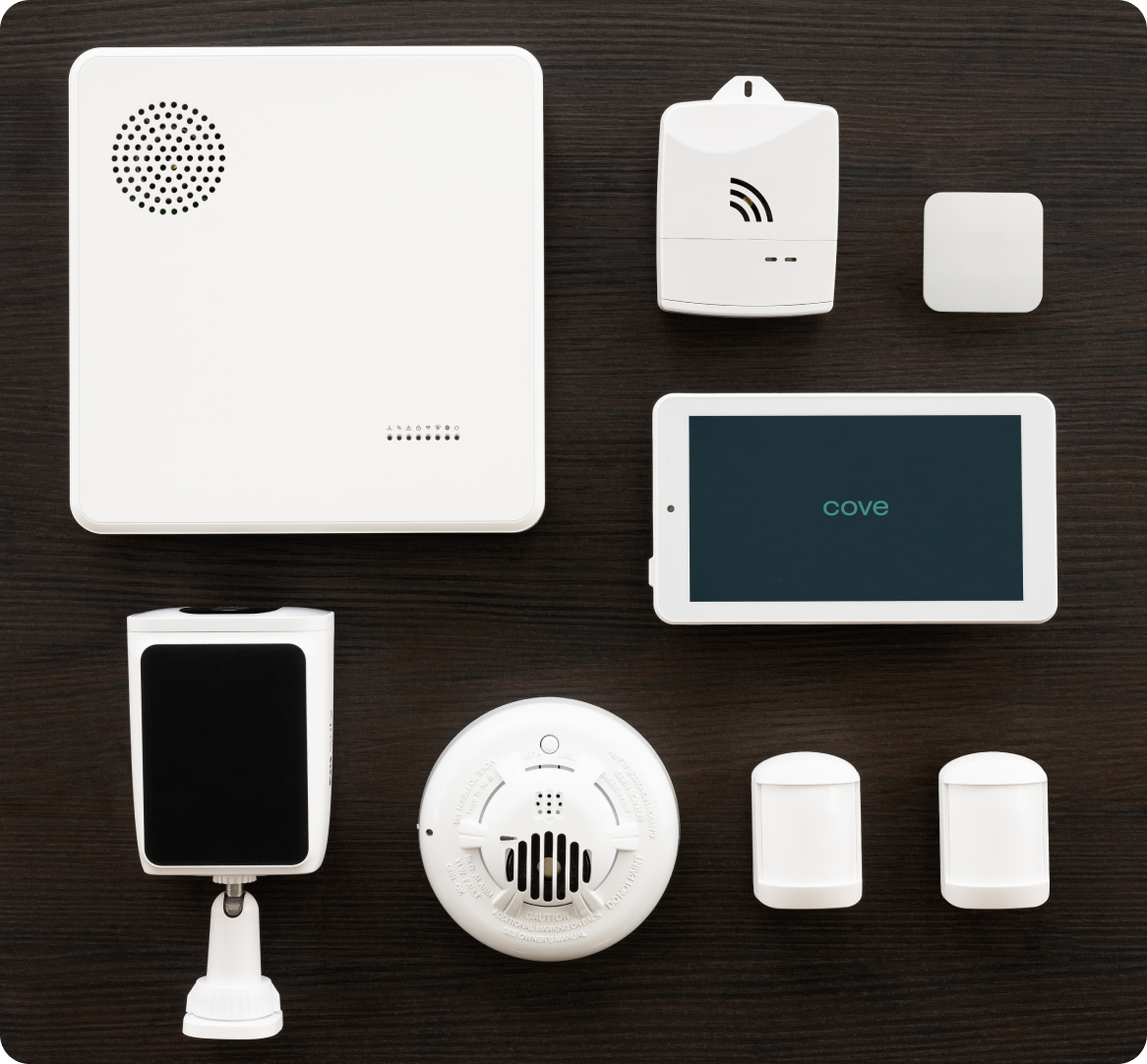
Key Features
Having used Cove’s system, I can attest to the effectiveness of its core features:
-
Touch screen hub connected to professional monitoring
-
Integration with RapidSOS for faster emergency response
-
Text messaging alerts and emergency contact options
-
Lifetime equipment warranty
-
Rate-lock guarantee on monitoring services
-
$5 monthly equipment credit for new products
Pros
-
Advanced Emergency Response: The direct connection to RapidSOS is a standout feature that could potentially save crucial minutes in an emergency.
-
Cost-Effective: The lifetime warranty and rate-lock guarantee provide long-term value, which is rare in the industry.
-
Customizable: The ability to design your own security system is a significant advantage for those with specific security needs.
-
Professional Installation Option: This is particularly beneficial for those who are less tech-savvy or have complex installation requirements.
-
Ongoing Equipment Credit: The $5 monthly credit for new products encourages system expansion and upgrades.
Cons
-
No Doorbell Camera: This is a significant omission, especially given the popularity of video doorbells in modern security setups.
-
No Self-Monitoring Option: Relying solely on the company’s monitoring network may be a drawback for those who prefer more control.
-
Costly Add-Ons: While the base system is affordable, creating a comprehensive setup with additional features can become expensive.
-
Limited Smart Home Integration: Compared to some competitors, Cove’s smart home capabilities are somewhat restricted.
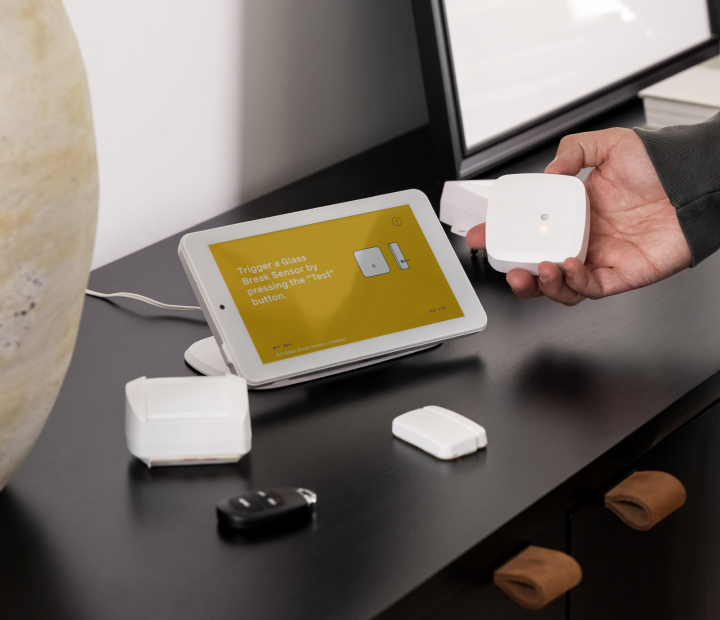
Insights While Testing
In my testing, I found Cove’s touch screen hub to be particularly user-friendly. However, the lack of a self-monitoring option might be a deal-breaker for some users who prefer more hands-on control of their security system.
The profession-specific discounts are a unique selling point that sets Cove apart in the market. This focus on certain professions shows a commitment to community service that many users might appreciate.
While Cove offers some advanced features like glass-break detectors, it’s important to note that these come at an additional cost. Potential buyers should carefully consider their security needs and budget when customizing their system.
Cove offers a solid, customizable security solution with some unique features and cost-saving benefits. It’s particularly appealing for those in specific professions and those who value professional monitoring and installation. However, the lack of a doorbell camera and self-monitoring options may be significant drawbacks for some users. As with any security system, it’s crucial to weigh the pros and cons against your specific needs and preferences.
Finding the Right No-Contract Security Solution for Your Home
After thoroughly evaluating the top no-contract security systems of 2025, it’s clear that today’s flexible security options have eliminated the need to choose between comprehensive protection and freedom from long-term commitments. With FBI data confirming 1.1 million residential burglaries annually and average losses of $2,661 per incident, effective home security remains essential—but it no longer requires surrendering control to traditional providers.
Each of our top recommendations offers distinct advantages depending on your specific needs:
SimpliSafe delivers exceptional reliability with straightforward installation, making it ideal for first-time security system users and those prioritizing ease of use. Its balance of simplicity and effectiveness, combined with optional professional monitoring, creates a versatile solution that adapts to changing security requirements.
Abode iota stands out for its remarkable smart home integration capabilities and all-in-one design. Tech-savvy homeowners who value comprehensive automation will appreciate its extensive compatibility with third-party devices and platforms, while its apartment-friendly design makes it perfect for renters seeking advanced security without permanent modifications.
Cove excels in personalization and emergency response speed, offering particular value to healthcare workers, educators, and military personnel through profession-specific discounts. Its lifetime warranty and rate-lock guarantee provide long-term value that offsets the initial investment.
The expanding market for no-contract security systems—projected to help drive the industry to $93 billion by 2030—reflects consumers’ growing recognition that flexibility and quality protection can coexist. Whether you’re among the 36% of Americans who rent their homes or simply value the freedom to adjust your security approach without penalties, these systems deliver sophisticated protection on your terms.
By carefully assessing your specific security needs, budget constraints, and technical preferences, you can select a no-contract solution that provides both peace of mind and the freedom to adapt as your circumstances change.
